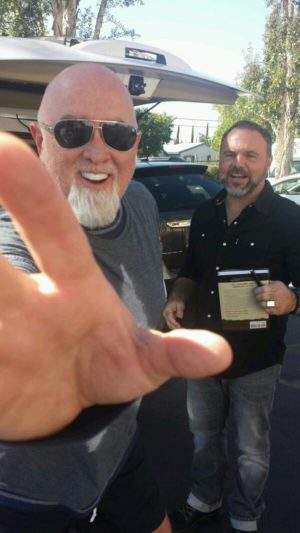James MacDonald (left), Mark Driscoll (right)
On the Debrief Show video blog with Matt Brown, Mark Driscoll told bloggers to blog so of course, I must. About what, you ask? Calvinism and the garbage that it is, according to Driscoll. Watch:
After saying Time magazine dubbed him one of the thought leaders of the “young, restless, and reformed” (YRR) movement, Driscoll added:
I don’t hold to the five points of Calvinism. I think it’s garbage, so blog about that, but anyways, because it’s not biblical.
It is my impression that Driscoll restated Calvinism in several ways over the years (e.g. here) to try to make it more acceptable so I don’t think this is a tremendous departure from the past. I will defer to Driscoll watchers to comment about Driscoll’s devotion to the five points. However, what is notable now is his dismissal of the system as “garbage.”
Even more interesting is Driscoll’s psychological analysis of his former YRR mates as “little boys with father wounds.” Calvin and Luther are father figures as is God. Calvin and Luther are “dead guys” who are distant like their earthly fathers. In a way, he provided an armchair explanation for why conversion could be viewed as a psychological experience rather than a spiritual experience. I wonder if he realizes he did that.
In any case, Driscoll left Mars Hill and told many people that he was ready to be a spiritual father — who we should revere apparently.
The rest of the program before and after the Calvinism disclosure is a rehearsal of the need for fathers and how one’s father image effects one’s God image. I might take it apart at a later time, but for now I have done my blogging duty.
Here in another life Driscoll discusses Calvinism and Arminianism. He named one of his sons after Calvin so at that time he was on team Calvin. In this sermon, he certainly didn’t think the five points were garbage. He agreed with them, albeit with a caveat on limited atonement.
Given that one’s view of God is related to one’s view of one’s earthly father, I can only guess that his view of his earthly father has changed.
